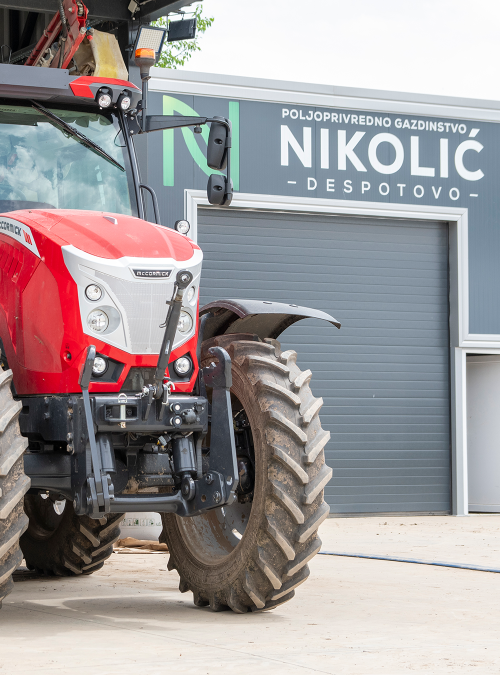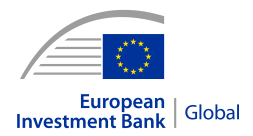
REEP/Ecoloans: Modernising a vegetable farm in Despotovo, Serbia
The Ecoloans programme supports small and medium-sized enterprises (SMEs) in adopting energy-efficient technologies by providing access to long-term financing and promoting sustainable business practices. It is part of the Regional Energy Efficiency Programme (REEP), established within the Western Balkans Investment Framework (WBIF) and supported by the EU. Alongside loans from the German Development Bank (KfW), the EU provides non-refundable grants. To date, €120 million has been made available to Serbian banks through the programme.
Slavoljub Nikolić’s Journey
Slavoljub Nikolić runs a 100-hectare vegetable farm in Despotovo, specialising in onions and potatoes. Producing 6,000 tonnes annually for both domestic and export markets, he modernised his operations after securing an Ecoloan from UniCredit Bank two years ago.
A graduate of the Faculty of Agriculture in Novi Sad, Slavoljub returned to his family farm with a vision of introducing modern agricultural practices. By attending global fairs and exchanging knowledge with experts from Germany and the Netherlands, he keeps up with the latest trends in vegetable farming.
Technological Improvements
On his farm, Slavoljub has introduced cutting-edge technologies. In onion production, he implemented a drip irrigation system, significantly reducing water usage while keeping foliage dry. For potatoes, an overhead sprinkler system was adopted. His farm now operates advanced European machinery for tasks from planting to harvesting. These machines allow simultaneous application of fertiliser, biostimulants, and insecticides during planting, which strengthens the plants and helps them withstand temperature shocks. The farm also boasts a state-of-the-art cleaning, storage, and packaging system.
One notable innovation is the introduction of "potato banking", which has increased yields and improved quality. To implement this, Slavoljub used a €110,000 Ecoloan to purchase modern tractors with enhanced hydraulic systems, replacing outdated models from the 1990s. This new equipment allows him to farm larger areas and apply advanced techniques. Additionally, a two-row harvester—the first of its kind in Serbia—was purchased. Capable of harvesting 200 to 250 tonnes in a 12-hour shift, it has drastically reduced the time needed for harvesting.
Impact and Sustainability
These modernisations have led to considerable energy savings, reducing consumption by around 15 MWh annually. The new equipment has also cut fuel usage by 20-30%, leading to an annual CO2 reduction of approximately 3.4 tonnes. Furthermore, the elimination of frequent machinery breakdowns has lowered unplanned costs and delivery delays. Slavoljub highlights that without access to loans and production subsidies, the development of large farms is unattainable. The Ecoloans programme was essential to his farm’s success, enabling him to invest in new equipment.
Future Plans: Solar and Digital Solutions
Dedicated to sustainable farming, Slavoljub plans to install solar panels for cold storage and irrigation, aiming to reduce both electricity and fuel costs. He is also exploring farm digitalisation, a growing trend in agriculture. In partnership with Dutch company OHZPC, Slavoljub is developing an experimental field with sensors that monitor air humidity, rainfall, temperature, and other factors to prevent crop diseases. By adopting these technologies, he hopes to implement timely interventions that will safeguard his crops.
Slavoljub takes pride in setting a positive example for sustainable farming and is eager to share his knowledge. He emphasises that the return on investment for his farm’s upgrades is quick, typically between one and five years. With the new two-row harvester alone, he expects to recover his investment within two to three years.
Read more about the Ecoloans programme
Discover another success story from Ecoloans
----------------------
The Regional Energy Efficiency Programme in the Western Balkans (REEP) aims to create a sustainable energy efficiency market in the region. The programme provides a combination of financial instruments for private sector and individual households, technical assistance and policy dialogue support for public institutions to overcome market obstacles and stimulate long-term market growth. REEP is implemented by the European Bank for Reconstruction and Development (EBRD) and the German Development Bank (KfW) with the support of the EU and other bilateral donors. To date, REEP has provided more than €300m in credit lines and €150m in direct lending for 1,000 SMEs, more than 12,700 households and 290 public buildings. This has contributed to almost 1 million MWh/yr in energy savings. REEP is identified in the European Commission's Economic and Investment Plan for the Western Balkans as one of the flagship projects within the "Renovation Wave" under the investment window "Clean Energy". These projects contribute significantly to the reduction of greenhouse gas emissions, and improve the living standards and health of citizens.




























